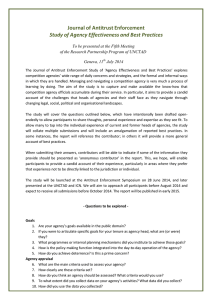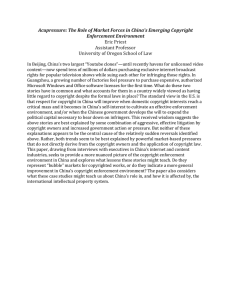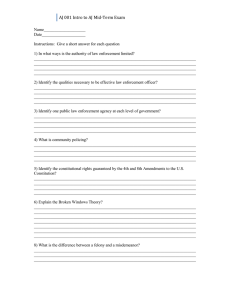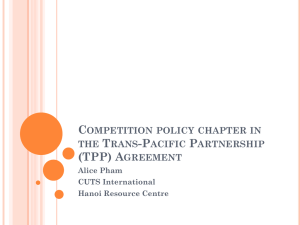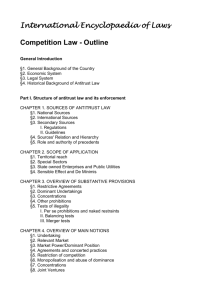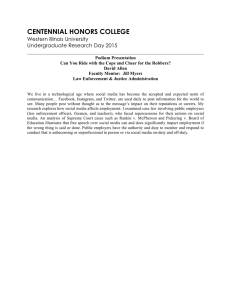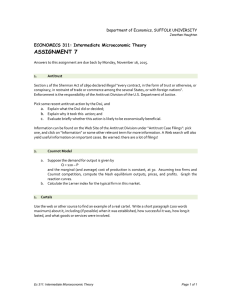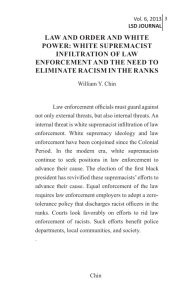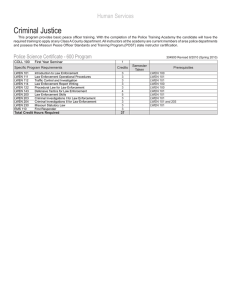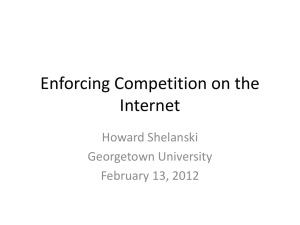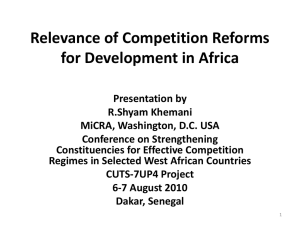DOC - Europa
advertisement
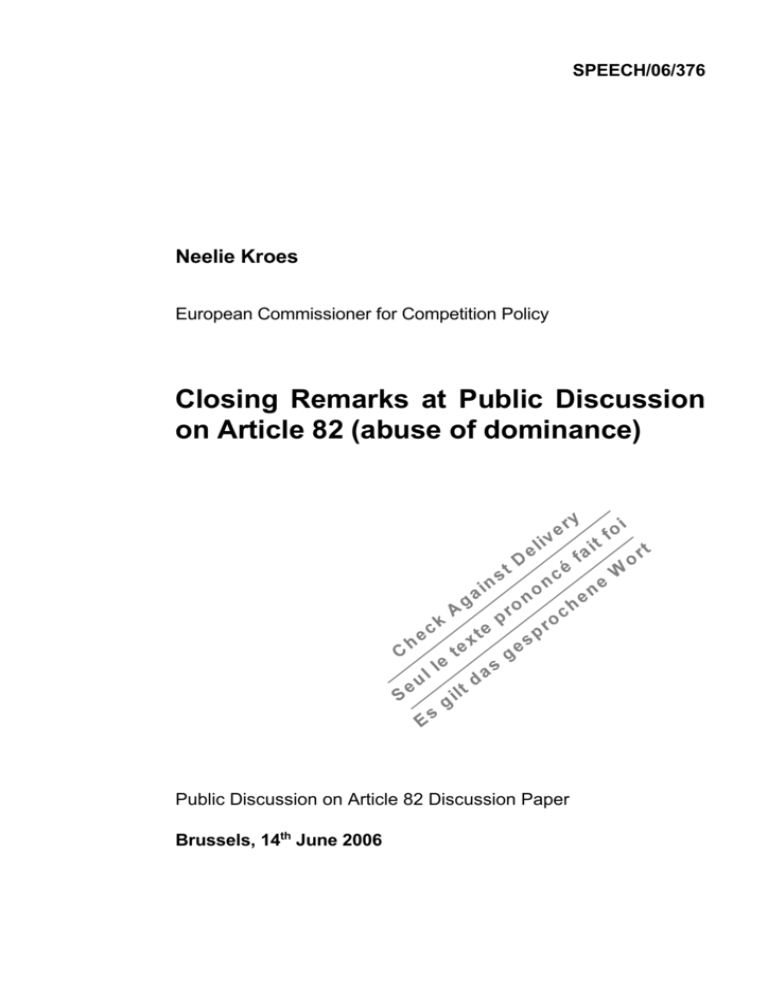
SPEECH/06/376 Neelie Kroes European Commissioner for Competition Policy Closing Remarks at Public Discussion on Article 82 (abuse of dominance) Public Discussion on Article 82 Discussion Paper Brussels, 14th June 2006 Ladies and Gentlemen, Throughout the world, courts and competition authorities have a difficult task. On one hand, they have to ensure that markets remain open and competitive and that all companies, including dominant ones, have the opportunity to compete hard and to innovate. On the other hand, they have to ensure that dominant companies do not over-step the line and decrease competition rather than increase it - or stifle innovation rather than promote it. This is not easy. And there are many different opinions on how best to achieve the right balance! The Discussion Paper published by DG Competition in December raised issues for debate. We have heard from a wide range of stakeholders through the public consultation, today’s debate, and numerous other conferences which are taking place on this subject. They are all vital in helping us to strike that balance. But the task of Competition Authorities is all the more difficult as we have limited resources and other very important competing priorities like fighting cartels and illegal state subsidies or controlling mergers. This is why I announced as early as my Hearing in Parliament before my appointment – some 18 months ago - that I want to focus the Commission’s enforcement activity on what really matters for the consumers as well as for the competitiveness of Europe. This means taking full advantage of the modernised framework introduced by my predecessor Mario Monti. The new rules free the Commission from the constraints imposed in the old days when our enforcement activity was “notification led”. This also means that the Commission is able to set priorities in handling antitrust cases, to focus on those infringements that: - are better dealt with at EC level, - actually or potentially cause significant harm to consumers - and/or hinder the competitiveness of EU industry. In this regard, I consider the ongoing review of the enforcement of Article 82 to be a vitally important development in antitrust policy. Of course I want to have a sound framework deeply rooted in sound economic analysis. But above all, I want us to be able to better define the unilateral behaviour on which we need to focus our enforcement activity. The objective of the Article 82 Review has always been twofold: firstly, to improve the quality of our decisions, and secondly, to ensure that we are going after the right cases. I am delighted that these concerns seem to be shared widely in Europe, and judging by the level of international attention that our work has prompted – elsewhere in the world as well. And I would particularly like to thank the many nonEuropean delegates who have come here today. I am especially thinking of our non European speakers: Professor Einer Elhauge of Harvard University; Jonathan Rubin, Senior Research Fellow of the American Antitrust Institute; and Professor Eleanor Fox of New York University. I should also like to thank everyone else who has come along and made a real and active contribution today. This conference marks the formal end of a very fruitful consultation period. We will now reflect on what has been written in the more than 100 contributions we received and on what has been said today. On this basis, we will consider what is the best way forward and what is the most appropriate form in which to provide guidance. 2 I am of course well aware that important decisions will have to be taken on several very controversial subjects: - How do we balance the need for clear rules of universal application, and the importance of getting the economic assessment right in individual cases? - Should there be clear rules for both safe harbours and per se prohibitions? - In terms of the economic assessment: how far should we go? What needs to be proven? And who bears the burden of proof? - How far should we rely on price-cost tests and in which circumstances? - Should we engage in an initial assessment of the actual or potential impact before committing resources to a case, rather than primarily relying on a cascade of rebuttable presumptions - Should “efficiencies” be included in the analysis of abuse of dominance and - if so - how? And I will stop here, although I know you have also brought other issues to the table today. As I am sure you are all aware, these and other questions need serious and careful reflection. I think we have already begun our journey towards our destination. If you consider where we are now compared to when we started the Review, I am sure you will agree that we have all learned a lot. Certainly, what we in the Commission have learned so far has already helped us to focus more closely on the right issues and to take better decisions. Today’s discussion has been yet another step towards meeting these objectives. I thank you again for your contribution. 3
